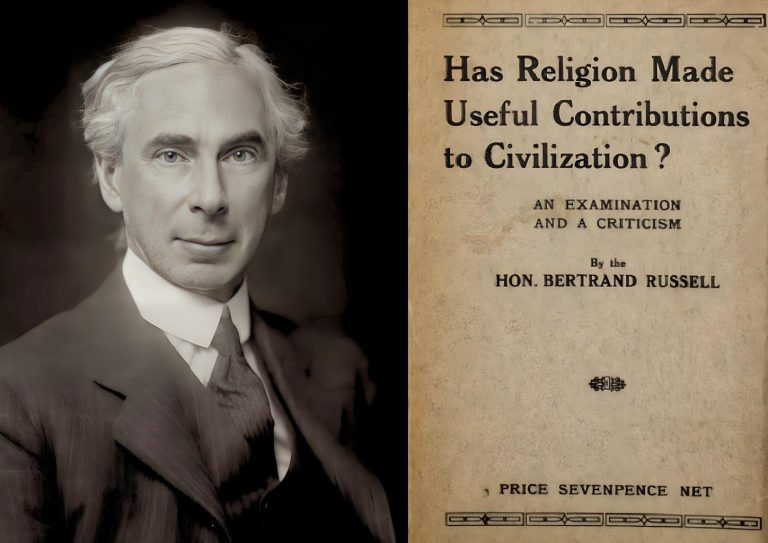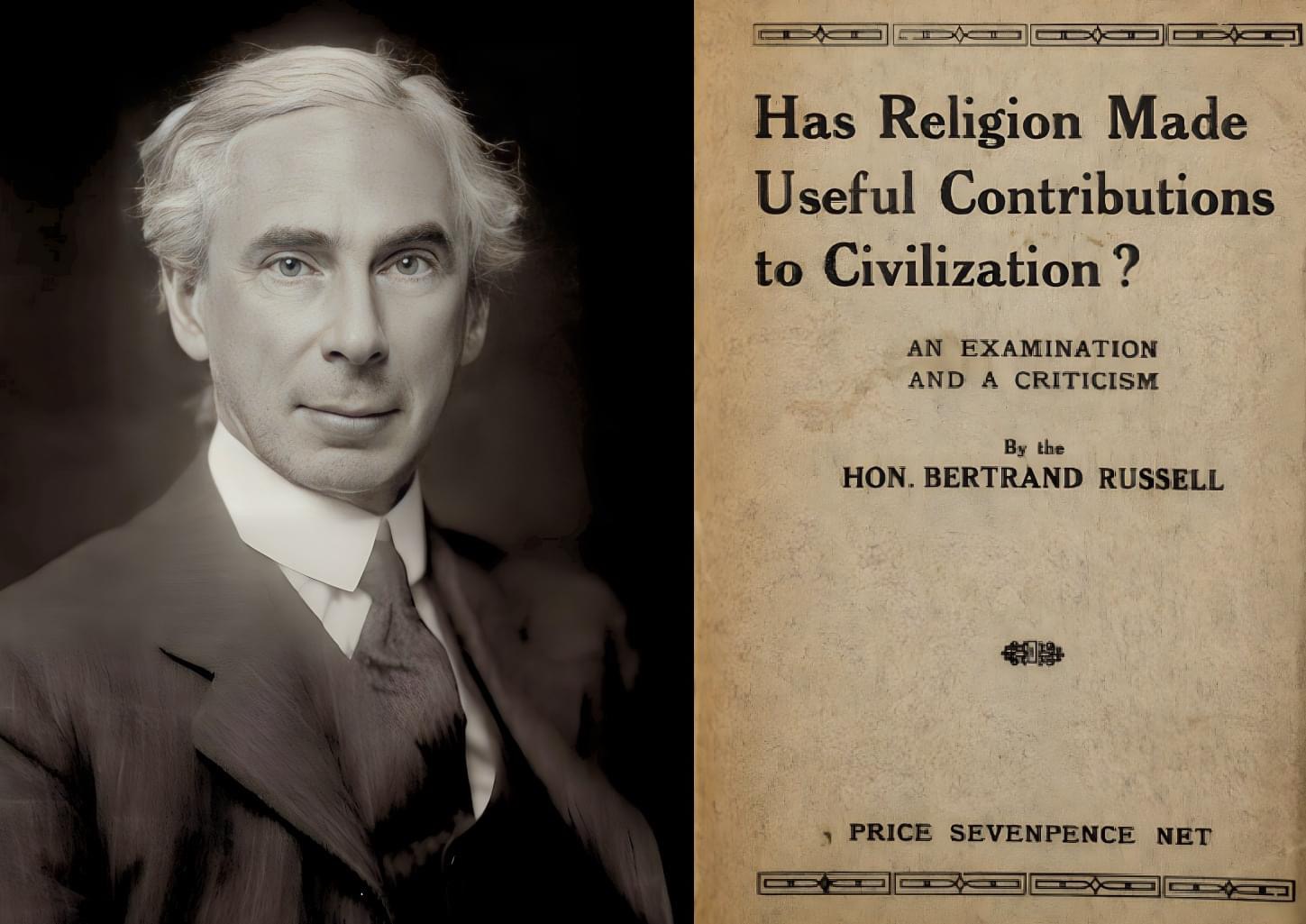
Has Religion Made Useful Contributions to Civilization? (1930)
”My own view on religion is that of Lucretius.* I regard it as a disease born of fear and as a source of untold misery to the human race. I cannot, however, deny that it has made some contributions to civilization. It helped in early days to fix the calendar, and it caused Egyptian priests to chronicle eclipses with such care that in time they became able to predict them. These two services I am prepared to acknowledge, but I do not know of any others … The knowledge exists by which universal happiness can be secured; the chief obstacle to its utilization for that purpose is the teaching of religion. Religion prevents our children from having a rational education; religion prevents us from removing the fundamental causes of war; religion prevents us from teaching the ethic of scientific co-operation in place of the old fierce doctrines of sin and punishment. It is possible that mankind is on the threshold of a golden age; but, if so, it will be necessary first to slay the dragon that guards the door, and this dragon is religion.”
— Bertrand Russell, Russell on Religion (1999), Part. IV: Religion and Morality, Essay. 16: Has Religion Made Useful Contributions to
Civilization?(1930), pp. 175-6
━━
Background: Lucretius
- Lucretius was a Roman poet and philosopher. He wrote extensively during the late Roman Republic, was highly well known and respected, yet only one of his works survive – the philosophical poem De rerum natura, which concern the tenets and philosophy of Epicureanism, usually translated into English as On the Nature of Things. By today’s definitions, neither Epicurus nor Lucretius were atheists. But the Epicurean gods of Ancient Greece and Rome were personifications of the forces of nature, and like everything else in the Epicurean cosmos, entirely material, composed of atoms. The gods were altogether lacking in interest and power to intervene in human affairs. The historian Ada Palmer has labelled Lucretius’s thought as “proto-atheistic”. She qualifies her use of this term, cautioning that it is not to be used to say that Lucretius was himself an atheist in the modern sense of the word, nor that atheism is a teleological necessity, but rather that many of his ideas were taken up by 20th and 21st-century atheists, such as can be found in the New Atheism movement.
For example, the late Christopher Hitchens uses On the Nature of Things as the first chapter in his best selling anthology The Portable Atheist: Essential Readings for the Nonbeliever (2007). Bertrand Russell’s criticism of religion was highly influenced by Lucretius which he often noted. According to Lucretius, religion gives rise to the unreasonable desire, or is born of the desire, to make man at home in what seems to be an uncaring world. It therefore cannot be the path to happiness. Russell wholeheartedly agreed.
“Rest, brother, rest. Have you done ill or well Rest, rest, There is no God, no gods who dwell Crowned with avenging righteousness on high Nor frowning ministers of their hate in Hell.”
— Lucretius

